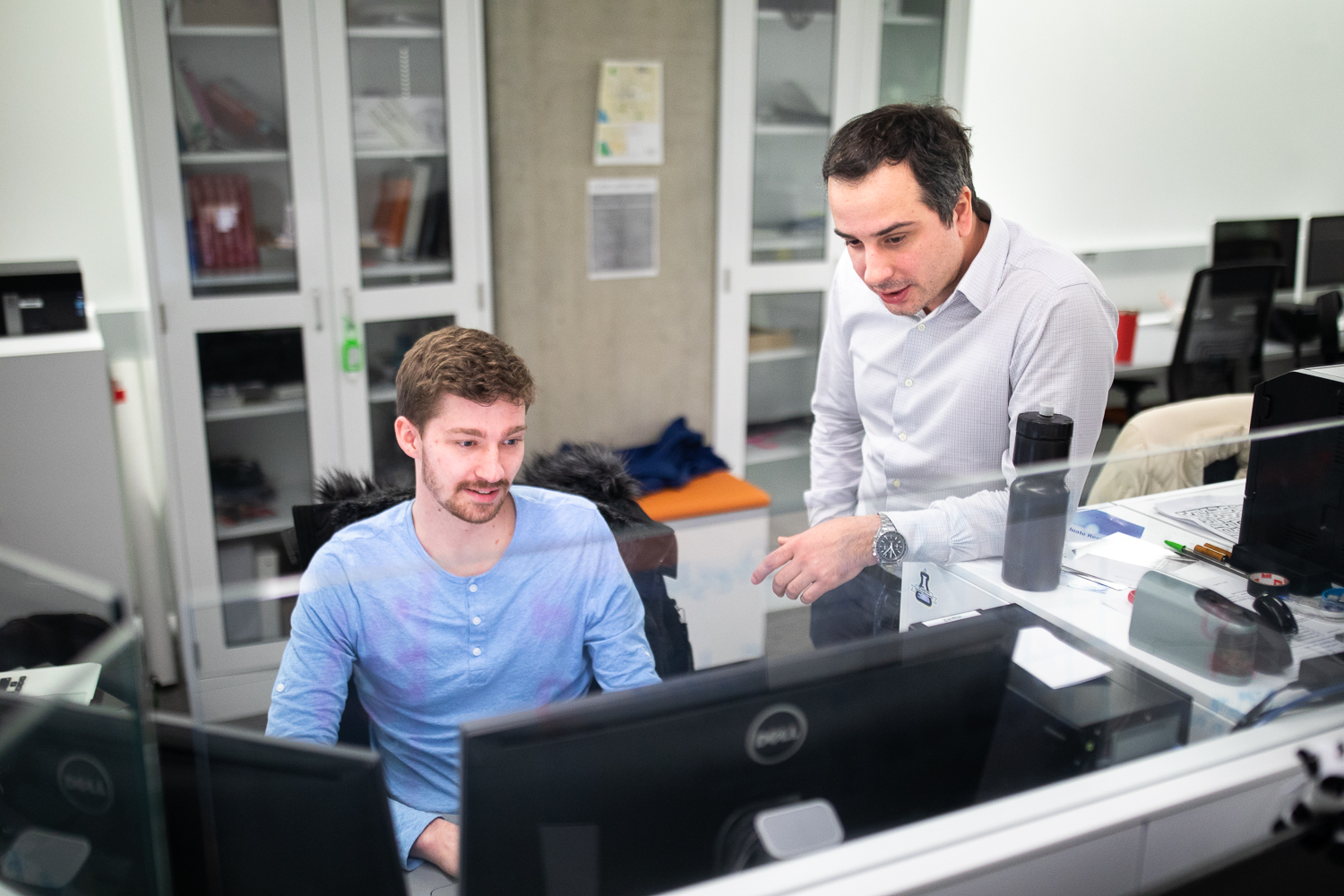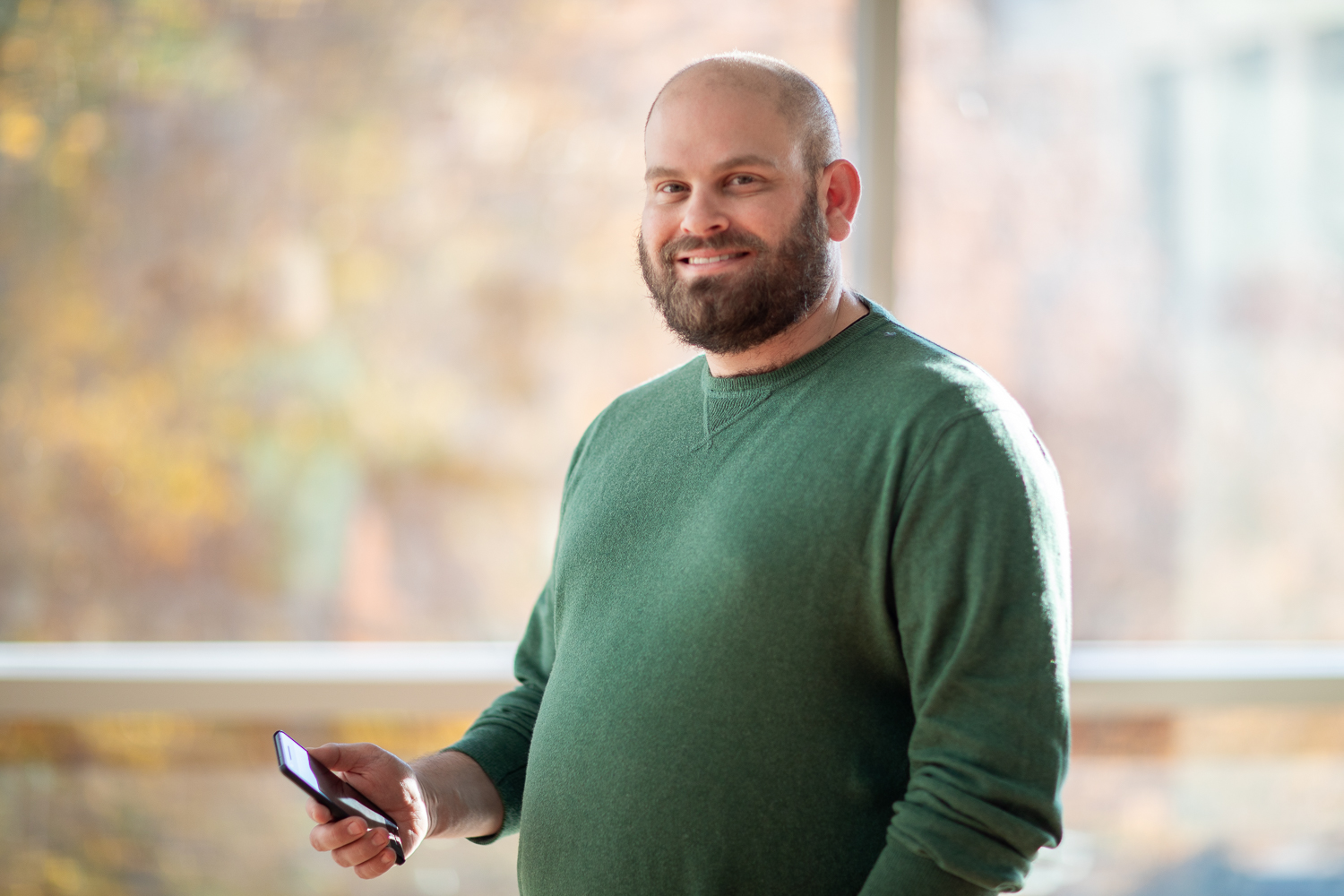By Kristen Mitchell
Pesticides play a key role in protecting food crops as they grow, but chemicals often linger in the environment long after harvest. Jakub Kostal, an assistant professor of chemistry in GW’s Columbian College of Arts and Sciences, is researching how pesticides transform when they are exposed to light— an interdisciplinary effort that lays the foundation for safer food production and a cleaner environment.
Dr. Kostal’s research combines the fields of environmental chemistry and computational chemistry, which uses computer simulation to assist in solving chemical problems. He plans to develop a computational framework to study how pesticides are altered through exposure to light, a process called photodegradation.
This framework will be a tool that can be used to fine-tune the degeneration process for new chemicals. Improved knowledge about pesticide photodegradation will help scientists develop new pesticides with desirable traits—such as the ability to deteriorate into a benign substance without remaining in the environment longer than necessary.
“You need pesticides to stick around for a while to do their job and protect crops, but after a while, and this is per requirements from the EPA, they have to degrade,” Dr. Kostal said. “They either don’t degrade, or often, they degrade into things that are much less benign.”
Computer simulations are a cost effective and environmentally safe way to explore the creation of new chemicals, Dr. Kostal said.
Dr. Kostal recently received a five-year nearly $700,000 National Science Foundation CAREER award for his project titled “Mechanistic investigation of chemical photodegradation to aid in novel pesticide design.” This project combines Dr. Kostal’s interest in computational chemistry with green chemistry, an area focused on designing products and processes that minimize the use and creation of hazardous substances, and predictive toxicology, which anticipates how chemicals will affect the biological systems. His lab primarily focuses on designing safer chemicals.
With support from the CAREER grant, Dr. Kostal aims to chip away at what he sees as an educational gap between environmental and computational chemistry. While there is significant cross-disciplinary work in pharmaceutical development, where researchers must consider concepts like toxicology and biochemistry, that innovation has not always trickled over to the development of industrial chemicals.
“Like all scientists, we tend to have tunnel vision,” he said. “There is also just simply more money to test and experiment in pharmaceuticals.”
To help bridge this knowledge gap, Dr. Kostal hopes to expose George Washington University students to computational chemistry techniques early in their academic careers. Through the grant, he plans to launch a new chemical design challenge that will bring together teams from different university labs to work on real-world challenges from industry.
“There is a lot of potential for techniques in computational chemistry to be translated for other disciplines,” he said. “Having that exposure early on, seeing the interconnectivity, breaks the gridlock.”



